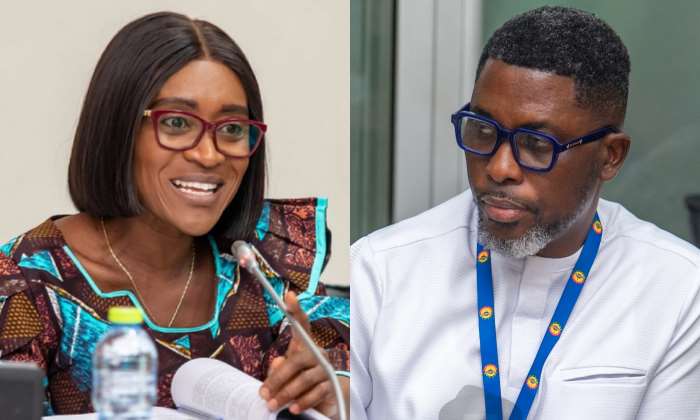A-Plus Challenges Abena Osei Asare’s Oversight Role
By Prince Ahenkorah
A simmering row over parliamentary oversight has erupted into open confrontation, as Gomoa Central MP Kwame Asare Obeng (aka A-Plus) formally petitioned Speaker Alban Bagbin to remove Hon. Abena Osei Asare from her post as Chair of the Public Accounts Committee (PAC).
The move signals growing unease within Parliament over the credibility of its watchdog functions amid deepening scrutiny of past financial mismanagement.
Osei Asare, a former Deputy Finance Minister under Ken Ofori-Atta, is accused by A-Plus of being too closely linked to a period marked by ballooning debt, opaque procurement deals, and regulatory lapses. Her appointment to head PAC a body tasked with holding public officials to account has drawn sharp criticism from civil society actors and opposition MPs who view her leadership as a conflict of interest.
In a statement released on 3 November, A-Plus cited multiple contracts under investigation by the Office of the Special Prosecutor (OSP), including the Strategic Mobilization Limited (SML) deal, the ECG–Beijing Jao Loss Reduction agreement, and the controversial ambulance procurement arrangement with Service Ghana Auto Limited. All were signed during Osei Asare’s tenure at the Finance Ministry.
The Gomoa Central MP also referenced her public defense of Rev. Ammishaddai Owusu-Amoah, the former GRA Commissioner-General, who refused to disclose his age during a PAC hearing.
That episode, A-Plus argued, exemplified her disregard for transparency and reinforced perceptions of institutional bias.
“The integrity of Parliament’s oversight is at stake,” he warned, adding that it is “morally indefensible” for someone so deeply embedded in the financial architecture under review to preside over hearings demanding accountability from others.
The Speaker has yet to respond publicly, but insiders suggest the matter is gaining traction among backbenchers and reform-minded legislators. The controversy comes at a time when Parliament is under pressure to restore public confidence following a series of procurement scandals and revelations of fiscal indiscipline across key ministries.
Osei Asare has not commented on the petition, but allies within the Majority Caucus are expected to push back against any attempt to remove her, framing the move as politically motivated. However, with the OSP’s investigations widening and public scrutiny intensifying, her position may become increasingly untenable.
The episode underscores a broader tension within Ghana’s governance architecture: how to reconcile institutional accountability with political loyalty in a system where oversight bodies are often chaired by former insiders. As Parliament prepares for its next session, the fate of the PAC chair could become a litmus test for its commitment to reform.


